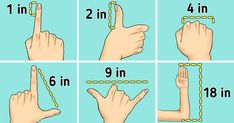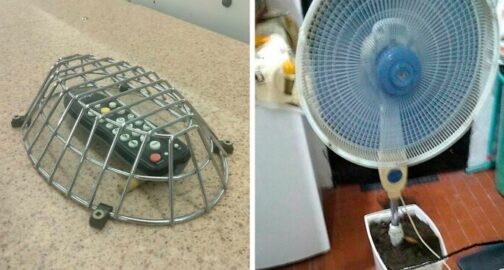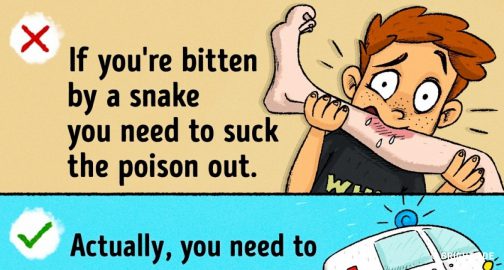
There are many rules out there explaining how to behave in emergency situations. But are all of them really that effective? We have found out that some of those survival tips are actually myths that are not only useless but also potentially dangerous.
First aid for a snake bite
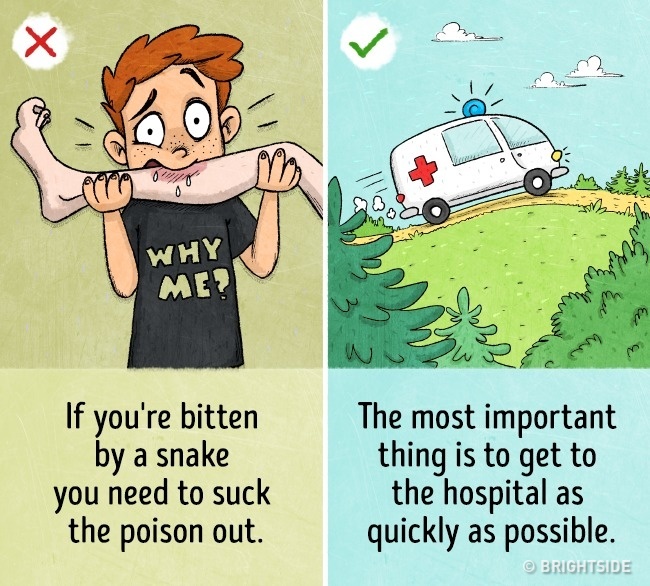
Snake venom enters the bloodstream extremely quickly, and it doesn’t accumulate at the bitten area. So trying to suck it out is ineffective. Moreover, putting your mouth on the bite may get venom into your mouth and esophagus. The best way for a bite victim to prevent poison from quickly moving through the bloodstream is to remain calm, keep the wound below the level of the heart, drink plenty of liquid, and, of course, try to get to the hospital as quickly as possible.
What to do if you get lost in the forest

You might have heard that the first thing you have to do if you get lost in the wilderness is to find some food. This is not entirely true. A healthy person can live without food for quite a long time: up to 6 weeks. But finding a source of water and building a shelter where you can hide from extreme weather are your first priorities.
How to build a great shelter
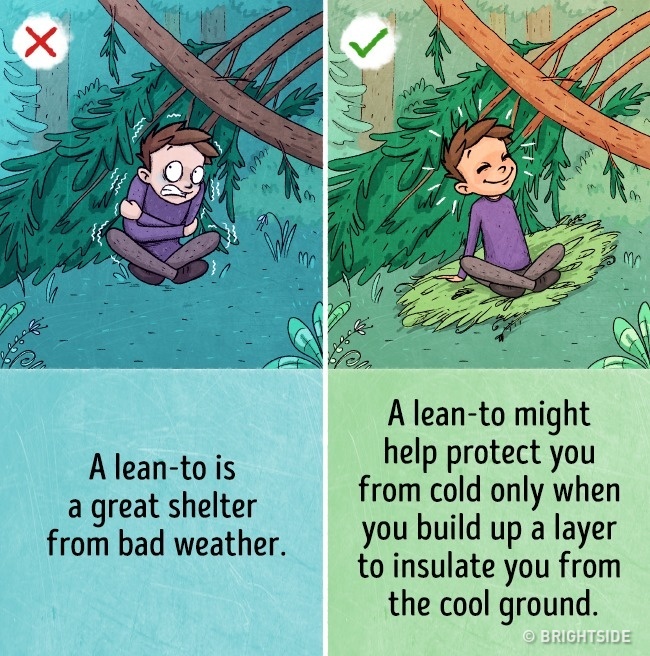
Before you get started on a suitable shelter, you should assess your surroundings and weather conditions. You need shelter to protect you from wind, rain, or scorching sun. But just building a lean-to isn’t enough. The cold ground will literally suck the heat right out of you at night unless you build a layer between your body and the ground.
How to find water in the desert
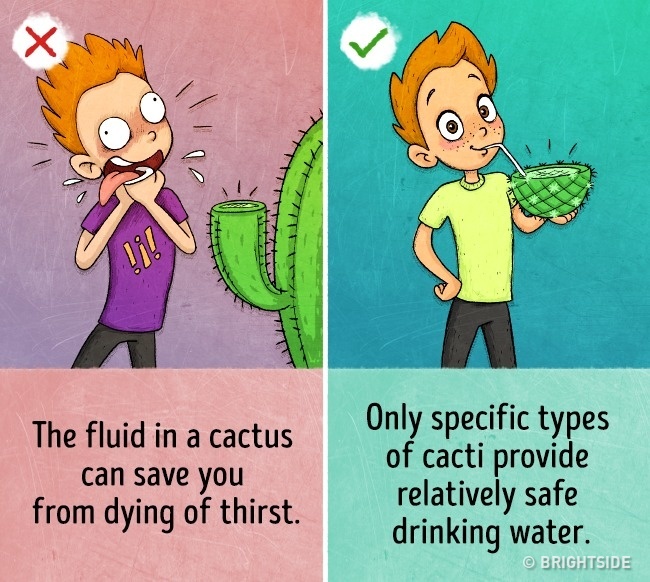
There is only one type of barrel cactus out there that contains drinkable water. You can also get moisture from the opuntia. But most of the time, cacti are poisonous. Drinking the fluid inside them will make you sick, causing you to vomit up precious liquid and leaving you more dehydrated.
How to survive a bear attack

Bears don’t want to attack, much less eat you. So in most cases you just need to back away slowly, keeping a close eye on the bear. Keep your distance. This will show the bear that you don’t have any pretensions of its territory.
How to know which plants are safe to eat and which are toxic

In fact, some berries and mushrooms that are deadly to humans aren’t poisonous to many animals and birds. So the only way to tell an edible plant from a poisonous one is to accurately identify the species of the individual mushroom or berry.
How to find direction by tree moss
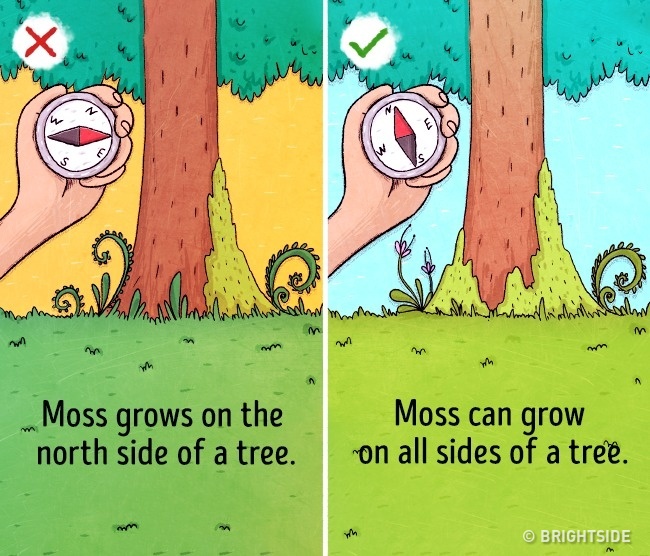
Moss can grow on all sides of a tree, depending on environmental conditions. Don’t rely on this popular myth while trying to find your way out of the forest, or you will get lost. Here are the ways to tell direction without a compass.
How to treat hypothermia
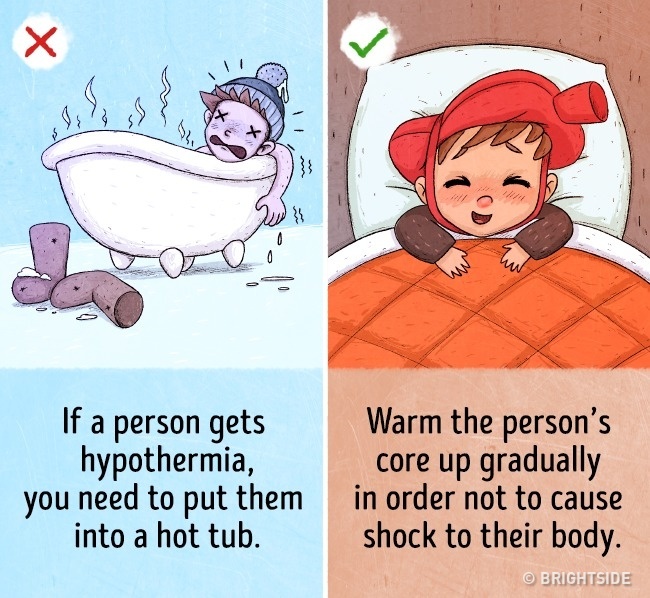
Never rub the frostbitten areas as this may cause further tissue damage. You also shouldn’t use hot water or a heating lamp to warm the victim. Treatment like this may end up causing shock to the victim’s body. Instead, you should warm the person’s core up gradually, preferably with blankets and some warm water bottles under their armpits.
How to survive a shark attack

You might have heard that you should punch a shark in the nose to survive its attack. Even if this is true, not many people have enough strength to do this, especially underwater. In the extremely rare instance of a prolonged negative encounter, try to put a solid object between you and the animal (for example, a diving mask or swim board). If there is nothing at hand, the best way to scare a shark away is to scratch its eyes or gills.



